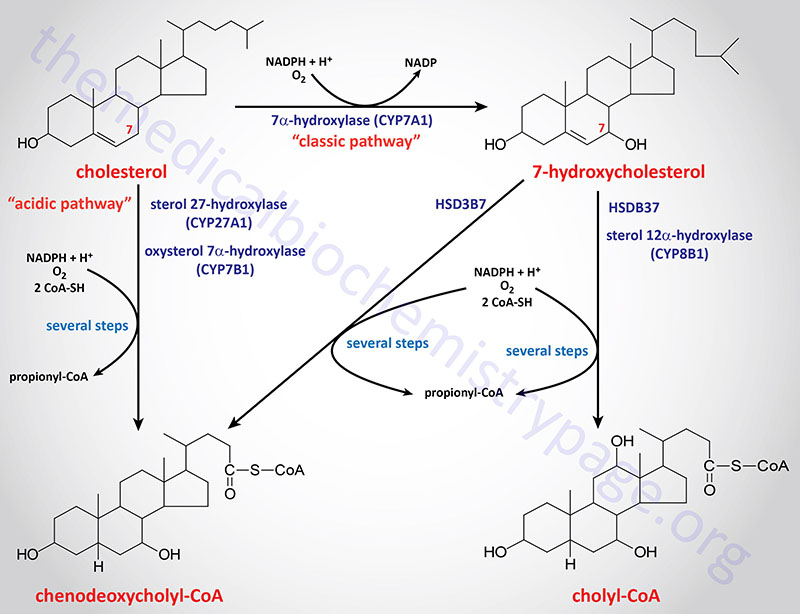In the ongoing battle against drug-resistant bacteria, Kinvard Bio is pioneering the creation of new antibiotics that aim to tackle one of modern medicine’s most pressing issues: antimicrobial resistance. This innovative Harvard biotech startup, born from the intellect and dedication of leading scientists, is developing a new class of antibiotics designed to outsmart resistant pathogens. Founded with the mission to address the shortage of effective treatments, Kinvard Bio employs cutting-edge antibiotic discovery techniques to synthesize compounds with the potential to provide hope where traditional medicines fall short. As the World Health Organization continues to sound alarms about the rising tide of resistant infections, Kinvard Bio’s efforts represent a crucial step towards restoring the efficacy of antibiotics, ensuring future generations can combat diseases effectively. By focusing on robust pharmaceutical innovation, this forward-thinking company aligns itself with global health initiatives to combat the critical challenge posed by resistant bacteria head-on.
As traditional antibiotics face growing ineffectiveness due to evolving bacterial defenses, the emergence of novel antimicrobial agents is becoming increasingly vital. Kinvard Bio, a dynamic startup emerging from Harvard’s academic powerhouse, is at the forefront of this critical mission, intent on developing alternative therapeutic options. This fresh wave of antibiotic solutions not only shines a light on the failures of existing treatments but also embodies the future of medicine in combating the scourge of antibiotic-resistant infections. By channeling advanced chemical research into practical applications, the company focuses on novel compounds that differentiate themselves in their mechanisms of action. Ultimately, Kinvard Bio’s innovative approach aims to revitalize the field of antibiotic therapy, providing meaningful breakthroughs in the fight against infections.
The Rise of Drug-Resistant Bacteria: A Global Health Crisis
In recent years, the emergence of drug-resistant bacteria has escalated into a significant global health crisis, affecting millions worldwide. The World Health Organization reports alarming statistics, estimating that antibiotic resistance was responsible for over a million deaths in 2019 alone. This resistance is primarily attributed to the overuse and misuse of antibiotics, as bacteria evolve mechanisms to evade the drugs designed to kill them. As antibiotic treatment options dwindle, the threat posed by infections that were once easily treatable is becoming increasingly dire.
Addressing this crisis requires urgent innovation and a commitment to research in antibiotic discovery. Traditional antibiotics, like penicillin, have been effective, but the rapid adaptation of bacteria means that new solutions are necessary. This predicament has led to significant investments in biotech startups focused on developing new classes of antibiotics that can bypass existing resistance mechanisms. Understanding the dynamics of these drug-resistant bacteria is critical to formulating effective treatment strategies.
Kinvard Bio: Pioneering Solutions in Antibiotic Resistance
Kinvard Bio, a Harvard biotech startup, is at the forefront of combating antimicrobial resistance by developing a novel class of antibiotics. Founded under the guidance of leading synthetic chemist Andrew Myers, Kinvard Bio is leveraging cutting-edge research from the Myers Lab to innovate in antibiotic discovery. Unlike conventional antibiotics, Kinvard’s compounds target the bacterial ribosome with a unique binding mechanism designed to overcome resistance previously exhibited by pathogens.
The startup’s innovative approach focuses on compounds known as oxepanoprolinamides, meticulously designed for effective interaction with bacterial structures. By exploring novel chemical pathways, Kinvard Bio aims to create medications that can restore efficacy against infections that have long been resistant to treatment. As antimicrobial resistance continues to challenge healthcare systems, companies like Kinvard Bio exemplify how research and technology can converge to address this pressing health issue.
Antibiotic Discovery: A Focus on New Classes of Medicines
The ongoing battle against antibiotic resistance highlights a critical need for continued innovation in antibiotic discovery. Recent years have seen a disheartening trend, with only a handful of new antibiotics approved, many of which belong to existing classes rather than introducing entirely new mechanisms for action. This stagnation in the development of new treatments is troubling, given the escalating prevalence of drug-resistant infections.
Kinvard Bio’s focus on creating new classes of antibiotics is a vital step towards overcoming the limitations of current treatments. By designing antibiotics that avoid pre-existing resistance mechanisms, the company aims to provide healthcare professionals with effective weapons against multidrug-resistant organisms. The shift towards novel antibiotic formulations is essential in ensuring that medical practitioners can continue to tackle infections that threaten patient lives.
The Importance of Targeting Bacterial Ribosomes in Antibiotic Development
The bacterial ribosome is an essential target for the development of effective antibiotics due to its role in protein synthesis. Targeting the ribosome with precision can disrupt bacterial growth and survival, making it a clinically validated approach in antibiotic research. Kinvard Bio is uniquely positioned to exploit this target through their oxepanoprolinamides, which have been engineered for superior binding capabilities. This innovative tactic can potentially sidestep the barriers posed by drug-resistant bacteria.
By directing efforts towards this crucial component of bacteria, researchers are opening new avenues for antibiotic therapy. The unique binding characteristics of Kinvard’s compounds mean they could remain effective against pathogens that have outsmarted traditional antibiotics. Thus, the focus on bacterial ribosomes represents a promising direction in combating the urgent threat of antimicrobial resistance facing the global health community.
The Legacy of Antibiotics: From Penicillin to Today’s Challenges
The story of antibiotics began with the discovery of penicillin in the 1940s, heralding a new era in medicine where previously fatal infections could be treated effectively. However, the legacy of this miracle drug has been marred by the rapid rise of drug-resistant bacteria. As early as the 1960s, health experts began to notice that bacterial resistance was emerging, and since then, it has reached alarming levels, necessitating a reevaluation of how antibiotics are developed and utilized.
Understanding this historical context is crucial as we face current challenges in antibiotic efficacy. The legacy of antibiotics is not just about their initial impact on health; it also serves as a lesson in the importance of responsible antibiotic use and the need for persistent innovation in drug development. Startups like Kinvard Bio are a continuation of this legacy, striving to build a future where sustainable antibiotic treatments are available, despite the challenges posed by resistance.
The Future of Antibiotics: Building a Pipeline to Combat Resistance
The future of antibiotics hinges on creating a robust pipeline of new drug candidates that can effectively combat drug-resistant infections. This ongoing effort requires collaboration between biotech firms, academic institutions, and healthcare providers to ensure the development and accessibility of innovative treatments. Kinvard Bio’s commitment to developing new antibiotics is a testament to the collaborative spirit needed to confront this global health crisis.
Recent developments in Kinvard’s pipeline, including support from initiatives like CARB-X and the Blavatnik Biomedical Accelerator, underscore the growing recognition of the urgency surrounding antibiotic resistance. By focusing on unmet medical needs associated with severe bacterial infections, Kinvard Bio aims to not only extend the efficacy of existing treatments but also provide alternatives for ailments that currently lack satisfactory solutions.
Collaboration in Biotech: A Catalyst for Antibiotic Innovation
Collaboration within the biotech sector is critical for driving innovation in antibiotic development. Kinvard Bio exemplifies this collaborative spirit, as it brings together experts from various fields to work towards common goals in combating antimicrobial resistance. Partnerships with organizations like the Harvard Office of Technology Development and Kineticos Life Sciences have empowered Kinvard to translate groundbreaking research into practical solutions for patients.
These collaborative efforts are crucial, as the development process for new antibiotics involves complex challenges, from funding and regulatory hurdles to clinical trials. By fostering a cooperative ecosystem, biotech startups can navigate these challenges more effectively, ensuring that vital breakthroughs in antibiotic therapy reach the market, ultimately benefiting patients facing resistant infections.
Health Impact of New Antibiotics on Future Generations
The successful development and deployment of new antibiotics carry significant implications for public health, particularly for future generations. As drug-resistant infections continue to rise, the ability to introduce effective therapies will be pivotal in safeguarding health outcomes. Antibiotics are not just medications; they are essential tools that enable various medical treatments and procedures. Effective antibiotics ensure safer surgical procedures, cancer treatments, and other interventions that rely on the control of infectious complications.
In this context, Kinvard Bio and similar companies represent hope for a future where effective antibiotics can counteract resistance and preserve the efficacy of infectious disease management. Investing in the research and development of new antibiotics not only protects current populations but also secures the health of future generations who may otherwise face the limitations of outdated therapies against advanced strains of bacteria.
Navigating the Regulatory Landscape for New Antibiotics
The pathway to bringing new antibiotics to market involves navigating a complex regulatory landscape that is essential for ensuring patient safety and drug effectiveness. Biotech firms like Kinvard Bio must adhere to rigorous standards set by regulatory agencies, including the FDA, which evaluates the safety, efficacy, and quality of new antibiotic drugs before they can be approved for public use. This process is critical, especially in light of the challenges presented by drug-resistant bacteria that complicate traditional approval routes.
Understanding these regulatory requirements is crucial for companies aiming to innovate in antibiotic discovery. Kinvard Bio’s commitment to developing a new class of antibiotics involves not only scientific excellence but also strategic awareness of regulatory expectations. By staying ahead of regulatory guidelines, Kinvard can expedite the transition of their innovative compounds from the research lab to the clinic, ensuring timely access for patients in need of effective treatments against resistant infections.
Frequently Asked Questions
What are new antibiotics and how do they combat drug-resistant bacteria?
New antibiotics are innovative medications developed to treat infections caused by drug-resistant bacteria. These antibiotics, like those created by Kinvard Bio, target bacterial structures differently than existing treatments, providing hope for conditions that have become difficult to manage due to antimicrobial resistance.
How is Kinvard Bio contributing to antibiotic discovery?
Kinvard Bio is at the forefront of antibiotic discovery, focusing on creating new classes of antibiotics that are effective against drug-resistant infections. Their research emphasizes the development of oxepanoprolinamides, which have shown promising results in preclinical studies against a variety of resistant pathogens.
What is antimicrobial resistance and why is it a global health concern?
Antimicrobial resistance occurs when bacteria evolve to resist the effects of medications, making common infections harder to treat. It poses a severe global health threat, as evidenced by the World Health Organization’s report of millions of deaths linked to antibiotic-resistant infections in recent years.
What makes the antibiotics developed by Kinvard Bio different from existing treatments?
The antibiotics developed by Kinvard Bio, specifically the oxepanoprolinamides, are structurally optimized to bind to the bacterial ribosome in a unique manner. This highly effective binding reduces the likelihood of pre-existing resistance mechanisms rendering them ineffective, an important advancement in combating drug-resistant bacteria.
How does Kinvard Bio’s research reflect the importance of innovation in addressing antibiotic resistance?
Kinvard Bio’s research exemplifies the need for innovation by actively developing new antibiotics in response to the alarming rate of antimicrobial resistance. Their commitment to synthesizing unique compounds shows promise for effectively treating infections that current antibiotics can no longer manage.
In what ways are Kinvard Bio’s antibiotics expected to impact the treatment of infections?
Kinvard Bio’s antibiotics aim to significantly impact the treatment of drug-resistant infections by providing new options for patients suffering from conditions like bacterial pneumonia and complicated urinary tract infections, potentially reducing hospital stays and improving patient outcomes.
What role does Harvard’s Myers Lab play in the development of new antibiotics?
Harvard’s Myers Lab plays a crucial role in the development of new antibiotics, such as those being pursued by Kinvard Bio. The lab conducts extensive research on synthetic chemistry, leading to the design and testing of novel compounds that combat antimicrobial resistance.
What is the significance of targeting the bacterial ribosome in antibiotic development?
Targeting the bacterial ribosome is significant because it is a proven and essential component in many bacterial species. By designing antibiotics that bind effectively to the ribosome, such as Kinvard Bio’s oxepanoprolinamides, researchers can create treatments that work well against a broad range of pathogens, including those that are resistant to current drugs.
What challenges do new antibiotics face before reaching clinical trials?
Before reaching clinical trials, new antibiotics face several challenges, including extensive preclinical testing to prove their efficacy and safety. Additionally, they must navigate funding, regulatory approvals, and the need for further innovating their mechanisms of action to overcome existing resistance.
Why is continued antibiotic innovation critical for future healthcare?
Continued innovation in antibiotics is critical to ensure effective treatment options remain available as bacteria develop resistance. New antibiotics, such as those under development by Kinvard Bio, are essential for combating emerging infections and maintaining public health in an era of rising antimicrobial resistance.
| Key Points | Details |
|---|---|
| Context of Antibiotics | Penicillin was the first antibiotic available in the 1940s, heralded as the most powerful germ killer. |
| Antibiotic Resistance | Over time, bacteria have developed resistance mechanisms, making some antibiotics ineffective. |
| Global Health Impact | In 2019, antibiotic resistance caused over a million deaths worldwide, raising the urgent need for new treatments. |
| Kinvard Bio | A Harvard startup focused on developing a new class of antibiotics targeting drug-resistant infections. |
| Innovative Compounds | Kinvard’s oxepanoprolinamides bind to the bacterial ribosome, designed to avoid existing resistance. |
| Funding and Support | The project received significant funding to advance antibiotic development and clinical trials. |
| Broad Application | Research aims to address high unmet needs in infections like bacterial pneumonia and chronic respiratory infections. |
Summary
New antibiotics are crucial in the fight against drug-resistant infections that pose significant global health challenges. With initiatives like Kinvard Bio emerging from premier research institutions such as Harvard, there is hope for innovative solutions that can effectively tackle bacterial resistance. As these new antibiotics are developed and tested, they could greatly enhance treatment options and reduce future fatalities associated with antibiotic resistance.



